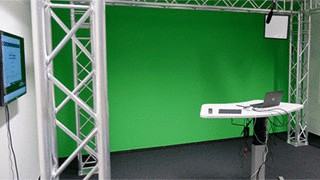This part is defined by the various data-gathering measures as well as day-to-day administration of the programmes. The various activities take part at different intervals (monthly, (bi-) annually).
Round Table Discussions
The monthly Round Table Discussions with the Student Council, conducted by the Programme and Quality Management team, provide the opportunity to get direct feedback from the students regarding current issues concerning the programme’s delivery. The discussions often lead to swift solutions or shed a light on structural problems that can be addressed by the Study Advisory Board and/or Faculty Council. Often the Programme and Quality Management Team comes up with a ad hoc solution for the issues addressed by the students.
Standard Monitoring of Curriculum delivery
Every semester the Programme and Quality Management Team makes sure that the programme delivery is conducted as constituted in the examination regulations. Furthermore, it pays attention to overlapping courses, checks for demand and supply of courses and ensures the recommended study plan.
Teaching Evaluation
In order to assure the quality of its course offerings, the School runs a teaching evaluation system which is administrated by the WiSo Evaluation Centre. The School offers students the opportunity to evaluate each module in an integrated approach, including all courses for a specific module (e.g. lectures, exercises or tutorials) and along several dimensions, including course contents and lecturers’ demeanour. The scope amounts up to 900 surveys each semester, approx. 1800 surveys per year. Due to the prospect of higher response rates, the School used to employ pen and paper questionnaires which students were asked to complete during the last class of the semester. The Faculty Development Plan aimed at introducing online surveys at the end of 2020, but due to the pandemic the School was able to implement online-questionnaires already at the end of the summer term 2020. As the University is implementing an integrated quality assurance system, the teaching questionnaires were unified and also updated in 2021. The School runs a pilot project and introduced the new questionnaire in winter term 2021/22. In summer term 2022, the new questionnaire is used for all teaching evaluations at the School.
All course data for the surveys are obtained from the Campus Management System and then manually processed via an Excel sheet in order to import the data into EvaSys, where the surveys are created and each course is linked to a corresponding questionnaire. In the midterm, an interface between the CMS and EvaSys has been tested to avoid manually processing. The courses are assigned to a main lecturer (approx. 300 per semester). The lecturers receive a link and QR code to the survey via email and are asked to insert the link e.g. in their PowerPoint slides etc., so that the students can complete the survey during the course. Thereby, a higher response rate is guaranteed. The (anonymised) results are published online on the website of the WiSo Evaluation Centre after each term. On request, lecturers can also receive an in-depth individual assessment of the quality of their teaching input from experts from the Centre for Advanced Teaching and Learning (Faculty of Humanities), which has a wealth of experience in improving teaching materials.
Candidates for the Junior Teaching Award are selected on the basis of the overall marks in each semester. The Study Advisory Board nominates two winners each semester (one for courses with fewer than 50 students, and one for larger courses) who receive the Junior Teaching Award at the graduation ceremony.
In addition, the overall grades are used to create a semester overview for the Dean. The courses are sorted according to type of courses (lectures, tutorials, etc.) and teaching language (German or English), and are also presented in an ascending order of grades. Furthermore, the Academic and Programme Director have access to all course evaluations for the first semesters of their respective programme. In the near future, they will gain access to all course evaluations for a holistic overview of the teaching quality of their respective programme.
Evaluation of admission process
After every year`s admission process is concluded, the admission office evaluates the past process in order to improve the administration of the admission process. In addition, the admission office has a closer look at the admission criterias and dicusses possible calls for actions with the Acedemic and Programme Directors.
Student Survey
In order to systemetically detect strengths and weakness of each programme every two years the whole cohort of a programme is invited to take part in the student survey. This survey is oriented towards the quality criterias the University has created for its quality assurance system such as: content, competencies, relevance and practical orientation, digital teaching, examination procedures, workload, conditions and organisation, duration of study, study-related stays abroad, facilities and equipment, advice and support, personal study situation and overall assessment.
Graduate Survey
The graduate survey has been running systematically since 2008. Alumni are surveyed one year after graduation in order to collect information about their career development and work experience. In order to determine the causal factors explaining the subjective and objective “employment success” of the School´s graduates, the School considers a range of independent variables, including socio-demographic and educational factors. Furthermore, the graduate surveys include questions on the achieved competencies and skills during studies, which enable the School to assess its success in imparting these competencies to its students.



